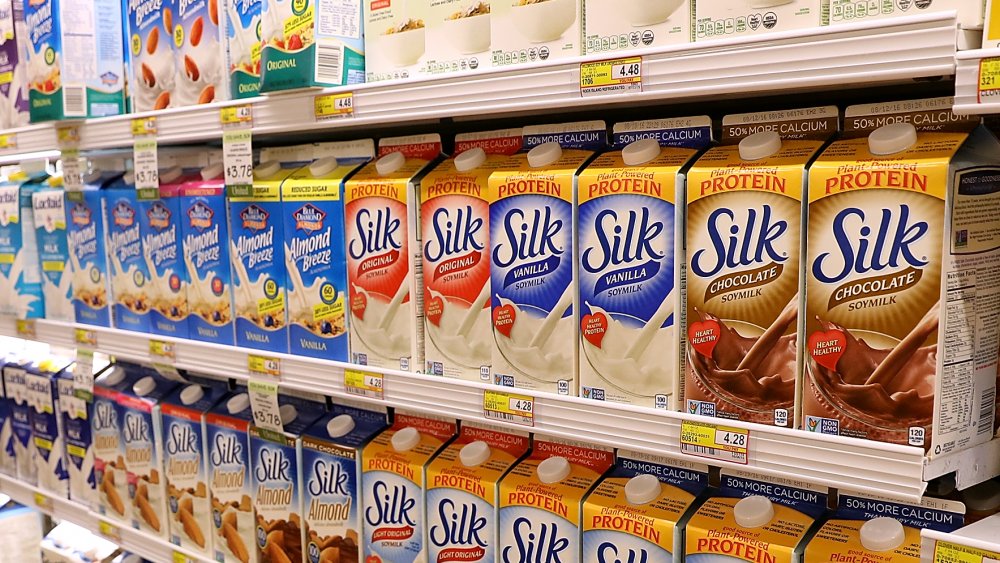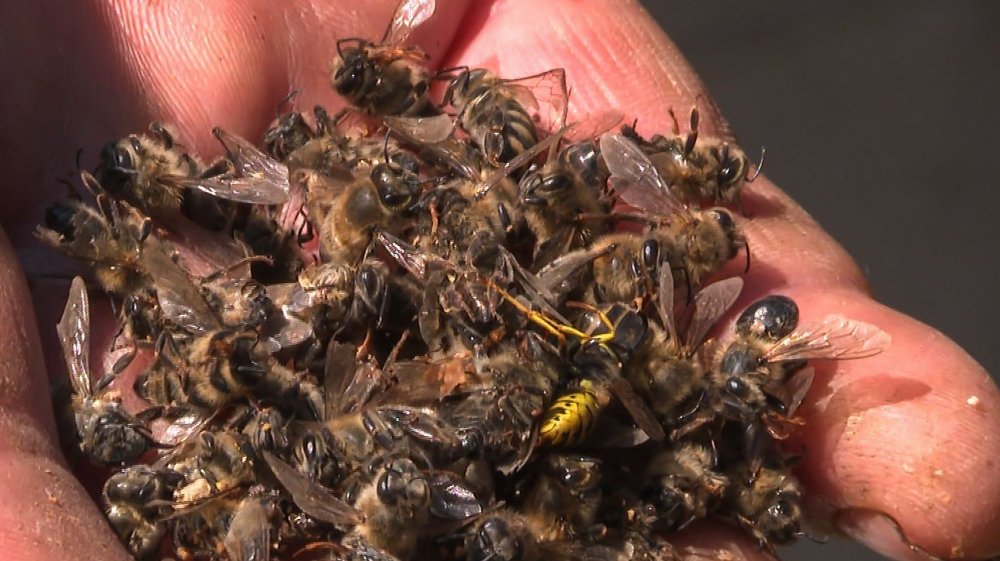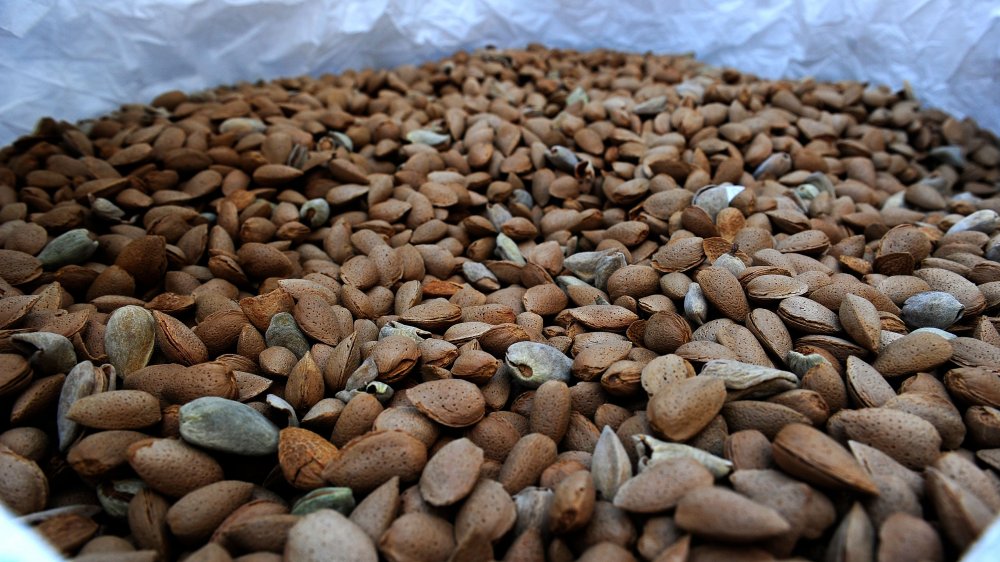The Deadly Truth About Almond Milk
It is a well-documented fact that the Internet exists for the sole purpose of pointing out how guilty you should feel about the things that bring joy to your life, like some hive-minded Catholic school teacher backed up by Snopes articles and a whole lot of heavy sighing.
It is with this unfortunate truth in mind that we must bring to your attention the deathly chaos sown by your love of vegan milk substitute. Whether you choose to drink almond milk as a way of outwitting your lactose intolerance or in an attempt to heel kick the inhumane practices of factory farmers, you should know that doing so has led to death. So much death. Billions have died to bring you your high-protein, low-fat coffee creamer. Read on. Learn more. We hope you feel terrible.
Aw, nuts
According to an article published by The Guardian, the almond industry, which has seen an enormous boom in the last few years, may be responsible for the deaths of tens of billions of honey bees.
The facts are these: people just don't want as much honey as they used to, but they do want almonds, with almond milk becoming an especially prominent product, expanding to $1.2 billion in sales in the last five years. With that in mind, professional beekeepers have been focusing in less on harvesting honey, and more on the cash cow of renting out their hives to almond croppers looking to pollinate their orchards.
As a result, the bees in question are exposed to less and less ecologically diverse areas, which isn't, as it turns out, the way they were meant to live. Basically, they're living the same way you did in college: eating the same thing every day, but without a school nurse to tell them to grow up. There's a high mortality rate for the insects sent into the almond fields, with one biologist describing the practice as "like sending bees to war." In the tail end of 2019 alone, more than 50 billion were estimated to have perished.
Bees have been dropping like flies in the last few years, and if you see a swarm in your area, try to overcome your My Girl-infused vengeance reflex and instead contact a local beekeeper to come take care of them.
Nut wait, there's more
Oh, what the heck. Let's keep going.
There are about a dozen more reasons to feel guilty about drinking almond milk. As has been pointed out by every killjoy in the kingdom, a single almond takes as much as five liters of water to grow. Take into account the fact that 80% of the world's almonds come out of California, a state suffering from crippling water shortages to begin with, and that figure becomes even harder to swallow than the filmy, cardboard-tasting almond drink to which it applies.
To make up the difference, some almond farmers are drilling into the aquifer to get their hands on that much needed H2O, causing unknowable damage to the environment and sinking the surrounding land by as much as a foot per year. Per the New York Times, it's also led to a There Will Be Blood-adjacent milkshake scenario in which farmers are digging deeper and deeper, drawing out water from surrounding properties and leaving their neighbors in the lurch. And, as a quick reminder, this is all for a nut that you pick around so you can get to the M&Ms in your trail mix.
And it just gets more complicated from there. As Forbes pointed out in 2016, tens of thousands of acres of land have been diverted to almond production, with 16,000 acres having previously been designated as wetlands.
Then there's the use of pesticides to protect the crops from health-conscious bugs just trying to up their protein intake without raising their cholesterol. The USDA Pesticide Data Program reported finding residue from nine separate pesticides on California. One is a known carcinogen, several others are suspected carcinogens, and five are deadly to honeybees. There were even three neurotoxins in there for good measure.
If all of this is eating away at your self-confidence and making you feel like a real monster, just know that the University of California San Francisco's Office of Sustainability has a few suggestions. They say that if you're drinking almond milk to avoid dairy, you should consider switching between nut based milk substitutes and things like sheep or goat milk, as these are generally easier to digest than your standard 2-percent. Additionally, they recommend buying certified organic almonds to minimize the risk of exposure to pesticides. They also say that you should check with your barista to make sure they're using organic almond milk behind the counter, presumably because this sort of behavior is beyond obnoxious, will get you banned from your local coffee place, and reduce your use of almond-based creamer to absolute zero.


